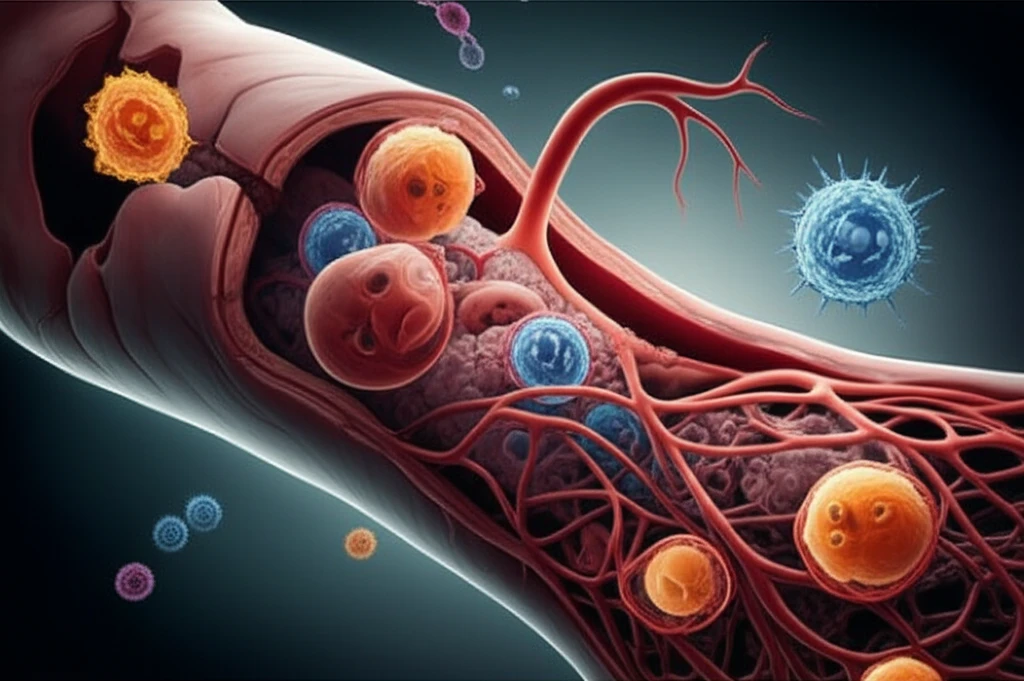
AVF Failure: How RP105 Deficiency Aggravates the Remodeling Process
"New research sheds light on the critical role of RP105 in arteriovenous fistula (AVF) maturation and failure, offering potential therapeutic targets for improving outcomes."
Arteriovenous fistulas (AVFs) are a lifeline for hemodialysis patients, but their high failure rate presents a significant clinical challenge. When an AVF fails to mature properly, it leads to increased morbidity and limits effective dialysis treatment. Understanding the complex mechanisms behind AVF maturation failure is crucial for developing better interventions.
Key factors in AVF success include outward remodeling (the widening of the vein), controlled inflammation, and the behavior of vascular smooth muscle cells (VSMCs). Researchers are actively investigating these areas to identify potential therapeutic targets that can improve AVF patency and reduce failure rates.
A recent study has focused on RP105, a protein that regulates TLR4 signaling, which plays a role in immune responses and inflammation. By examining how RP105 deficiency affects AVF maturation in a mouse model, the research team has uncovered new insights into the interplay between inflammation and VSMC function, potentially paving the way for novel therapeutic strategies.
RP105's Role in AVF Maturation and Remodeling

The study revealed that mice lacking RP105 exhibited a 26% decrease in venous outward remodeling, a critical process for successful AVF maturation. Further investigation showed that RP105 influences the inflammatory response and VSMC function within the AVF.
- Reduced Venous Outward Remodeling: RP105 deficiency significantly impairs the widening of the vein, a crucial step for effective dialysis.
- Impaired Inflammatory Response: RP105 deficiency leads to an imbalance in immune cell populations, disrupting the natural healing process.
- Decreased VSMC Content: The amount of VSMCs, critical for vessel wall remodeling, is markedly reduced in RP105-deficient AVFs.
- Altered VSMC Function: RP105 deficiency impairs both the proliferation and migration capabilities of VSMCs, hindering proper vessel adaptation.
Implications and Future Directions
This research provides valuable insights into the role of RP105 in AVF maturation failure. By demonstrating how RP105 deficiency affects inflammation, outward remodeling, and VSMC function, the study identifies potential targets for therapeutic intervention.
The findings suggest that strategies aimed at modulating RP105 activity, or its downstream effects on immune cells and VSMCs, could improve AVF patency and reduce failure rates. Future research should focus on developing cell-specific targeting approaches to precisely manipulate RP105 signaling within the AVF.
Ultimately, a better understanding of the complex interplay between inflammation and VSMC function will lead to more effective strategies for preventing AVF failure and improving the lives of hemodialysis patients.
